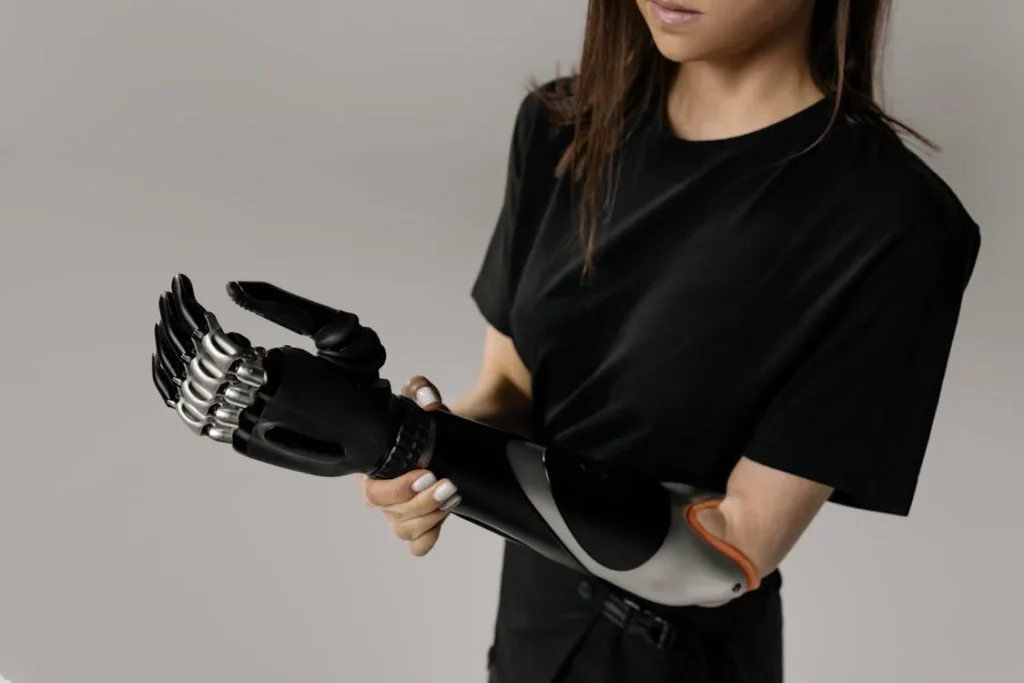In rural India, the decision to use a prosthetic limb is often influenced by more than just medical needs. Culture, tradition, and social beliefs play a significant role in whether a person chooses to adopt a prosthetic or not. While modern prosthetics offer greater mobility and independence, many individuals in villages hesitate to use them due to deep-rooted perceptions about disability, identity, and societal acceptance.
Unlike urban areas, where technological advancements and medical awareness drive prosthetic adoption, rural communities often rely on traditional mindsets. For some, a missing limb is seen as a sign of fate or divine will, while for others, wearing a prosthetic may invite unwanted attention or even social stigma. Family influence, economic factors, and local belief systems all shape how prosthetics are viewed and whether they are embraced or rejected.
Understanding these cultural perceptions is essential for improving prosthetic adoption in rural India. By addressing concerns, breaking myths, and making prosthetic technology more accessible and socially acceptable, we can help more people regain their independence and confidence.
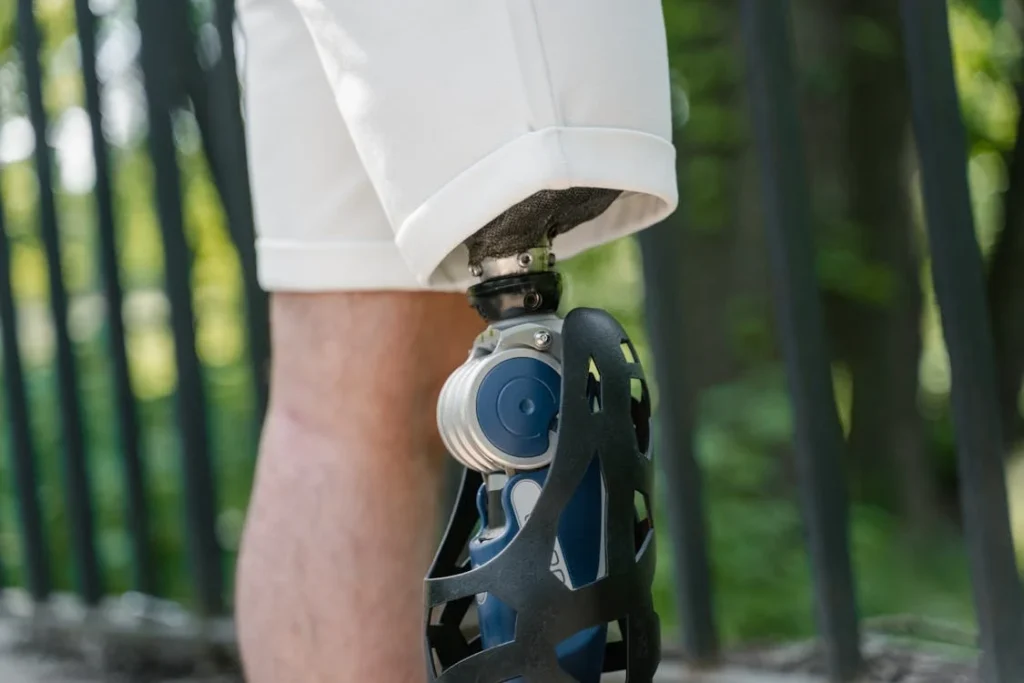
Traditional Beliefs and Their Impact on Prosthetic Adoption
Disability as Fate and Divine Will
In many rural Indian communities, disability is often viewed through the lens of karma, destiny, or divine intervention. A missing limb may be seen as a result of past actions, a test from the gods, or a burden that must be accepted rather than changed.
This belief can discourage individuals from seeking medical solutions like prosthetic limbs, as they may feel that using an artificial limb is an attempt to interfere with fate.
Some families believe that wearing a prosthetic limb could be an act of disrespect toward divine will. Instead of encouraging rehabilitation, they may see the disability as something to endure with patience and spiritual strength.
Elders, religious leaders, or even neighbors may reinforce these views, making it difficult for an individual to explore the possibility of using a prosthetic.
In such cases, medical advice alone is not enough to encourage adoption—cultural and spiritual concerns must also be addressed.
Stigma and Fear of Social Judgment
In tightly knit rural societies, people often fear how others will perceive them if they start using a prosthetic limb. There is a common concern that wearing an artificial limb will make them stand out, drawing unnecessary attention or even pity.
For many, being seen as “different” is worse than the physical challenges of limb loss itself.
Social acceptance plays a major role in shaping attitudes toward prosthetics. If someone in the community has successfully adopted a prosthetic and is leading a productive life, others may be more open to considering it.
However, if prosthetics are rare in a village, individuals with disabilities may choose to hide their condition rather than wear a visible artificial limb. In some cases, families may discourage the use of prosthetics to avoid gossip or social exclusion.
Women, in particular, face greater barriers when it comes to prosthetic adoption. In many rural areas, a disability is often seen as an obstacle to marriage, and families may worry that a prosthetic limb will further reduce a woman’s chances of finding a suitable partner.
These societal pressures can prevent individuals, especially young women, from seeking out prosthetic solutions that could improve their mobility and quality of life.
The Role of Family and Community
Decisions in rural India are rarely made alone. Family members, village elders, and community leaders all influence an individual’s choices, including whether or not to use a prosthetic.
Unlike in urban areas, where personal independence is valued, rural communities prioritize collective decision-making.
If a family is supportive, prosthetic adoption becomes easier. However, if relatives believe that an artificial limb is unnecessary or even harmful, they may discourage its use.
Some may worry about maintenance costs, while others may believe that a prosthetic will not work in their daily environment, especially in farming or labor-intensive jobs.
Convincing an individual to adopt a prosthetic often requires changing the perceptions of the entire family and, in some cases, the broader community.
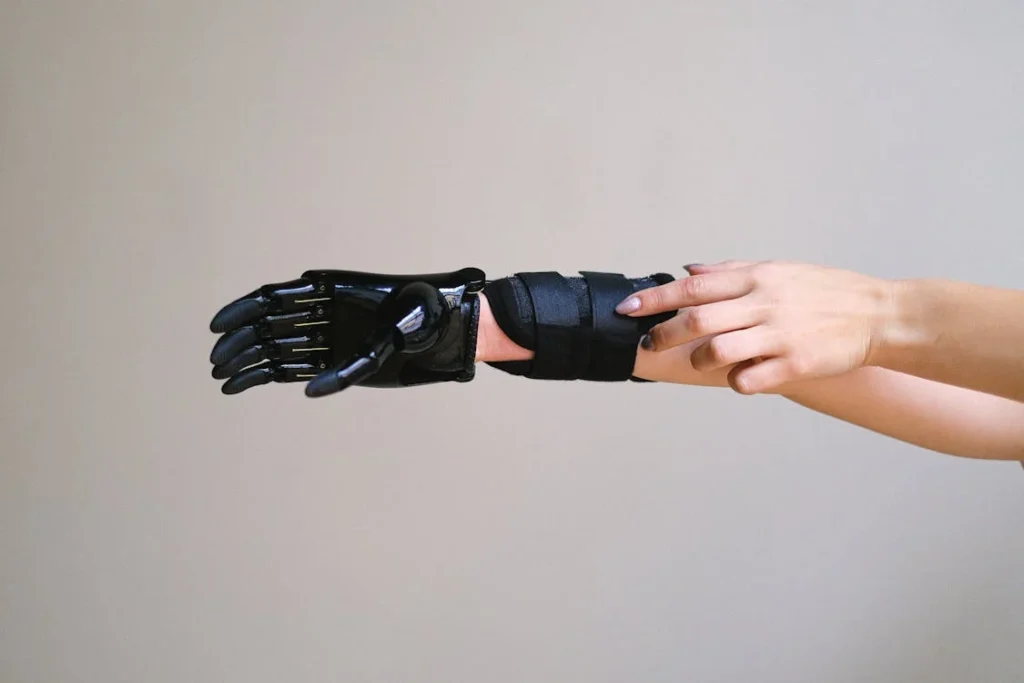
Practical Challenges and Misconceptions About Prosthetics
The Fear of Discomfort and Inconvenience
One of the biggest concerns among people in rural India is whether a prosthetic limb will actually improve their lives or make daily tasks more difficult. Many believe that artificial limbs are heavy, uncomfortable, and unsuitable for their way of life.
Since rural occupations often involve physical labor—farming, construction, or working in markets—there is a fear that a prosthetic will not be durable enough to handle rough terrains and demanding tasks.
Additionally, some individuals who have seen outdated or ill-fitted prosthetics assume that all artificial limbs are uncomfortable. A person who tried a basic prosthetic years ago and found it painful may discourage others from using one, even if modern designs are far more advanced.
The lack of awareness about lightweight materials, better joint flexibility, and personalized fittings leads to hesitation in adoption.
Another practical concern is maintenance. Many believe that prosthetics require frequent adjustments and expensive repairs, which they may not be able to afford.
If a limb breaks or becomes uncomfortable, people worry they will have to travel long distances to a city for repairs, further discouraging them from considering one in the first place.
The Cost Barrier and Economic Perceptions
Financial concerns are a major factor affecting prosthetic adoption in rural India. Many assume that prosthetics are expensive and only available to the wealthy.
Since rural families often have limited income and prioritize necessities like food and education, investing in a prosthetic may seem like an unnecessary expense—especially if they are unaware of affordable or subsidized options.
There is also a perception that prosthetics may not provide enough value to justify their cost. If a farmer or laborer believes they will still struggle to work even with an artificial limb, they may decide it is not worth the money.
Similarly, elderly individuals who have lived with a disability for years may feel they do not need a prosthetic at their age, viewing it as an unnecessary luxury rather than a tool for improving mobility.
In reality, many organizations and government programs provide financial support for prosthetic users, but awareness of these options remains low.
Without proper information on affordable solutions, people assume that prosthetics are out of reach, leading them to reject the idea without even exploring their options.
Myths About Functionality and Movement
Many rural communities have unrealistic expectations about how prosthetic limbs work. Some believe that an artificial limb should restore movement exactly like a natural limb.
If they see a prosthetic user walking with a slight difference in gait or struggling to adjust initially, they may assume the limb is ineffective.
Others believe the opposite—that prosthetics are weak, fragile, and only useful for cosmetic purposes rather than practical mobility.
This misconception is particularly common in farming communities, where individuals believe that prosthetic limbs cannot handle the strain of fieldwork, lifting heavy objects, or walking on uneven ground.
In reality, modern prosthetics are designed for different lifestyles and can be customized to fit rural conditions. However, because few people in villages have firsthand experience with high-quality prosthetics, outdated assumptions continue to discourage adoption.
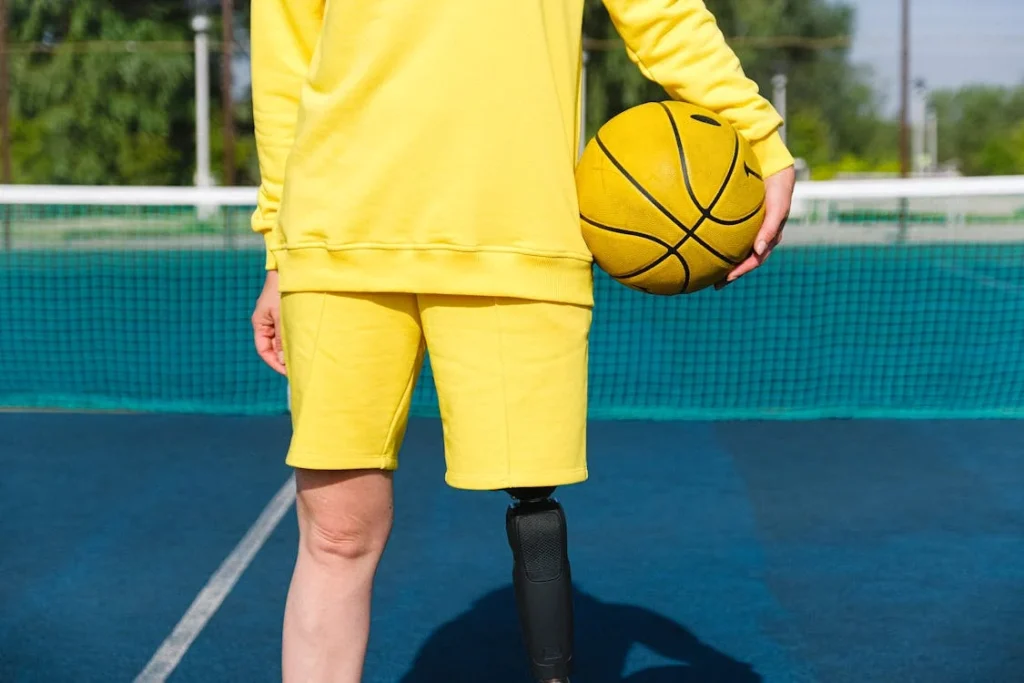
Changing Perceptions and Encouraging Prosthetic Adoption
The Power of Awareness and Education
One of the most effective ways to improve prosthetic adoption in rural India is through awareness and education. Many people do not reject prosthetics because they do not want them, but because they do not have enough information about how they work or how they can improve their lives.
Community outreach programs, medical camps, and real-life success stories can help change perceptions and encourage more people to consider prosthetic solutions.
When individuals see someone from their own village using a prosthetic and leading a normal, productive life, they are more likely to believe in its benefits.
Demonstrations and trial sessions allow potential users to experience a prosthetic before making a decision, helping them overcome fears about discomfort or usability.
Additionally, educating family members is crucial, as their support often determines whether an individual will feel encouraged to adopt a prosthetic.
Healthcare workers, community leaders, and disability advocates can play a significant role in spreading awareness. If doctors and local health centers actively promote prosthetics as a practical and affordable solution, people will be more open to considering them.
Schools can also be an avenue for education, ensuring that younger generations grow up with more inclusive attitudes toward disability and assistive technology.
Making Prosthetics Affordable and Accessible
Cost is one of the biggest concerns for rural families, so making prosthetics more affordable is essential for increasing adoption rates.
Government programs, non-profits, and companies like Robobionics are already working to provide low-cost, high-quality prosthetics, but more awareness about these options is needed.
Subsidized prosthetic programs should be expanded, and rural communities must be better informed about financial assistance options. Mobile prosthetic clinics can help individuals in remote areas get fitted without having to travel long distances.
Additionally, offering installment-based payment plans can make prosthetics more accessible to families who cannot afford the full cost upfront.
Innovations like 3D-printed prosthetics have also made it possible to develop lightweight, durable, and affordable artificial limbs that are better suited for rural environments.
By increasing the availability of such solutions and ensuring regular follow-ups for maintenance and adjustments, the long-term usability of prosthetics can be improved.
Shifting Cultural Mindsets Toward Inclusion
Ultimately, changing how prosthetics are viewed in rural India requires a shift in cultural attitudes toward disability. Instead of seeing prosthetics as a symbol of weakness or social stigma, they should be recognized as tools for empowerment.
Inclusion campaigns, featuring local role models who use prosthetics successfully, can help reshape public perception. Representation in media—whether in films, television, or local storytelling traditions—can also play a role in normalizing prosthetic use.
Religious and community leaders, who hold significant influence in rural India, can help change deep-rooted beliefs by promoting messages of self-reliance and dignity.
If people hear from trusted figures that using a prosthetic is a sign of strength rather than defying fate, they will be more likely to embrace it.
As awareness, accessibility, and cultural acceptance improve, prosthetic adoption in rural India will continue to grow.
With the right combination of education, affordability, and social support, more individuals will be able to regain mobility and independence, leading fuller and more productive lives.
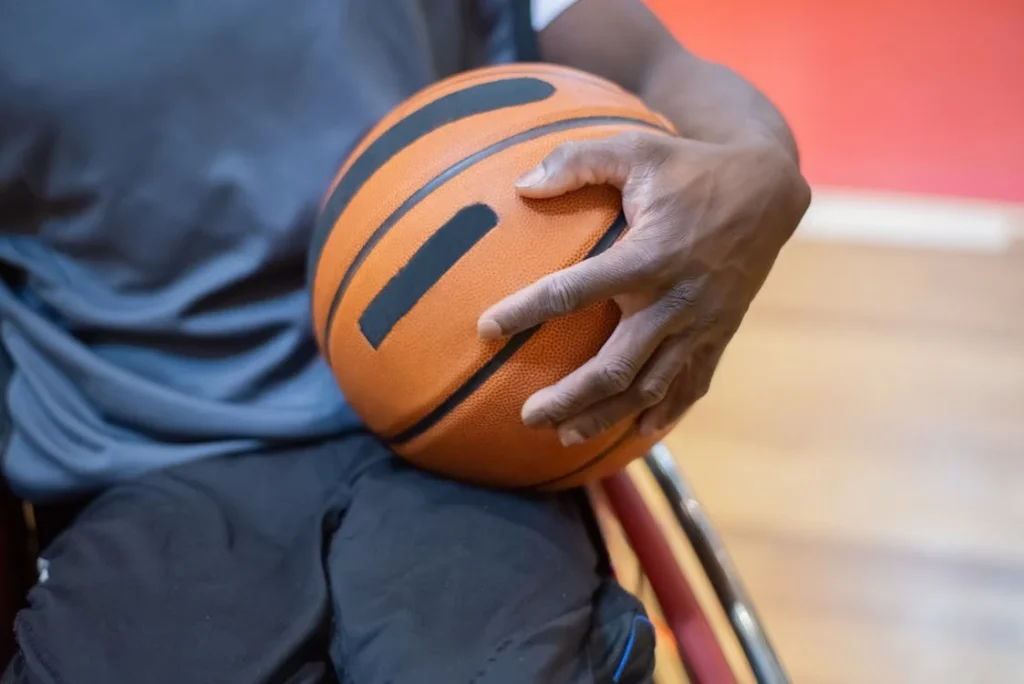
The Role of Technology and Innovation in Rural Prosthetic Adoption
How Advanced Prosthetics Are Addressing Rural Needs
Traditional prosthetics were often designed with urban users in mind, limiting their effectiveness in rural settings.
However, technological advancements have led to the development of more durable, lightweight, and adaptable prosthetic limbs that can withstand the rough terrain and labor-intensive lifestyles of rural India.
One of the most significant innovations is the use of 3D printing, which allows for cost-effective, custom-made prosthetic limbs.
Unlike conventional prosthetics that require multiple fittings and expensive materials, 3D-printed limbs can be tailored to individual needs and produced quickly. This technology has made high-quality prosthetics more affordable, reducing financial barriers for rural users.
Additionally, bionic limbs with sensory feedback are emerging as a game-changer in the prosthetic industry. These advanced prosthetics, like Grippy™ by Robobionics, restore some level of touch and movement, making them more intuitive and functional.
While bionic prosthetics are still relatively new in India, their potential to improve mobility and quality of life is significant.
Rugged, waterproof, and flexible prosthetics are also being designed specifically for agricultural workers and laborers. Traditional artificial limbs often struggled to endure heavy workloads, but modern materials such as carbon fiber and silicone composites provide greater durability and comfort.
These innovations make prosthetic limbs more practical for people in villages who rely on physical work for their livelihood.
Bridging the Gap with Mobile Prosthetic Clinics
A major challenge in rural India is the lack of access to healthcare and rehabilitation services. Many people who could benefit from a prosthetic limb never get fitted because they cannot travel long distances to reach a clinic.
To address this, mobile prosthetic clinics are emerging as a solution.
These traveling clinics bring prosthetic fittings, adjustments, and rehabilitation services directly to rural communities, eliminating the need for long and costly travel.
By partnering with local hospitals and community health workers, mobile units ensure that people receive continuous support, reducing the fear that prosthetics will become unusable over time.
Telemedicine is also playing a crucial role in prosthetic care. With the help of smartphones and digital platforms, rural patients can now consult with prosthetists remotely, getting guidance on fit adjustments, skin care, and maintenance without leaving their villages.
This technology not only improves convenience but also builds trust in the long-term viability of prosthetic solutions.
Gamified Rehabilitation: Making Prosthetic Use More Engaging
One of the reasons some people in rural India stop using prosthetics is that they do not feel confident or comfortable with them. Learning to walk or perform tasks with an artificial limb takes practice, and without proper rehabilitation, many individuals give up.
To make the transition smoother, gamified rehabilitation programs are being introduced. These interactive, home-based exercises turn prosthetic training into a more engaging and rewarding experience.
Instead of seeing prosthetic adaptation as a difficult challenge, users can track their progress through digital platforms, set goals, and even participate in community challenges.
By combining modern prosthetic technology with accessible rehabilitation solutions, individuals in rural India can not only receive better artificial limbs but also learn how to use them effectively.
This holistic approach ensures that more people experience the full benefits of prosthetic adoption.
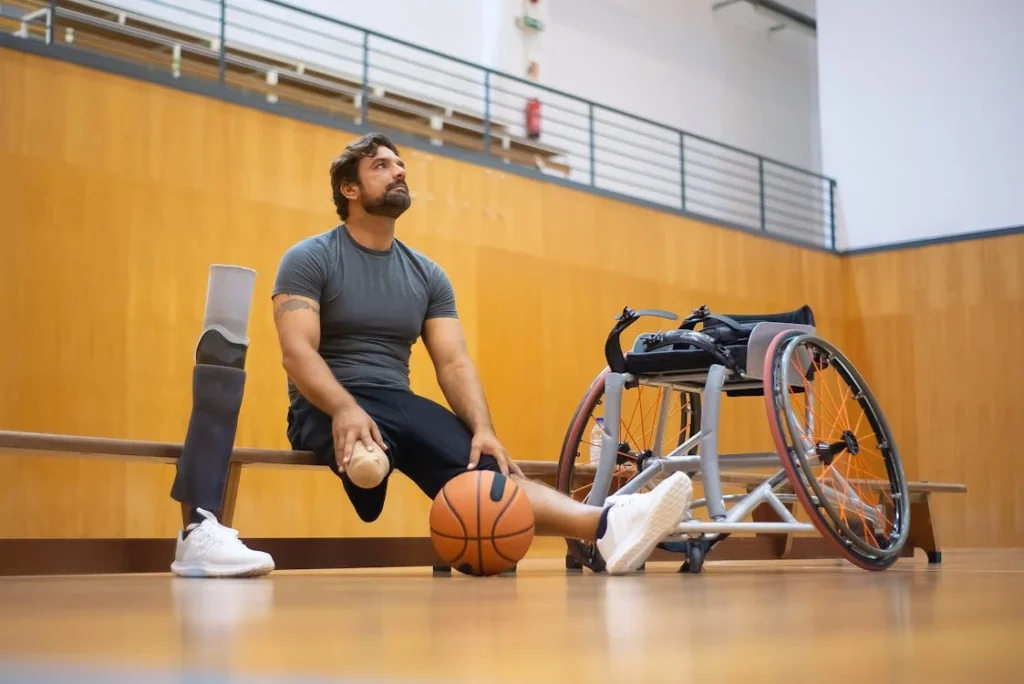
The Psychological and Emotional Aspects of Prosthetic Adoption
Overcoming the Fear of Change
For many people in rural India, losing a limb is not just a physical change—it deeply affects their sense of identity, self-worth, and social standing. The idea of using a prosthetic limb can bring mixed emotions, from hope and curiosity to fear and anxiety.
Many individuals worry about how they will adjust to a new way of moving, whether they will face social rejection, or if they will ever feel “normal” again.
A major challenge is the fear of failure. People who have spent years without a limb may feel hesitant to try a prosthetic, fearing that they won’t be able to use it properly.
If they struggle in the beginning, they may assume the limb is not for them and give up too soon. Encouragement from family members, healthcare professionals, and other prosthetic users can make a big difference in helping them push through the initial learning phase.
Additionally, many individuals have a strong emotional attachment to their lost limb. Accepting a prosthetic sometimes feels like accepting their disability, which can be difficult.
In communities where disability is seen as a personal weakness or divine punishment, this struggle is even greater. Psychological support is just as important as physical rehabilitation in ensuring long-term prosthetic adoption.
Restoring Confidence and Self-Worth
When a person loses a limb, they often struggle with self-image. They may feel incomplete or believe that others will see them as weak. This is especially true for women, who face additional societal pressure regarding marriage, beauty, and family expectations.
The idea of wearing a visible prosthetic may make some individuals feel uncomfortable, as they fear drawing unwanted attention.
However, many people experience a renewed sense of confidence once they start using a prosthetic successfully. Regaining mobility and independence allows them to participate in everyday activities without relying on others.
When they realize that they can walk, work, or even engage in social gatherings more easily, their self-esteem improves.
Community support plays a huge role in this transformation. When neighbors and family members react positively to someone using a prosthetic, it helps reduce feelings of self-consciousness.
Disability inclusion programs, village awareness campaigns, and role models who openly use prosthetics can encourage others to embrace assistive technology without shame.
The Importance of Peer Support and Role Models
One of the most powerful motivators for prosthetic adoption is seeing someone else succeed with it. In rural India, where personal experiences often carry more weight than medical advice, peer support groups and real-life role models can make a huge difference.
If someone sees a fellow farmer using a prosthetic to plow fields, or a shopkeeper standing behind their counter with an artificial limb, they are more likely to believe in its benefits.
Conversations with prosthetic users help break myths and offer reassurance about common concerns like comfort, durability, and long-term usability.
Programs that connect new prosthetic users with experienced ones can help ease the transition and provide emotional support. Sharing personal stories of success and adaptation can inspire others to take the first step toward regaining their mobility.
By addressing the psychological and emotional aspects of prosthetic adoption, rural communities can move toward greater acceptance and normalization of disability solutions.
When individuals see prosthetics as a tool for empowerment rather than a sign of weakness, adoption rates will rise, leading to better quality of life for many.

The Role of Government and NGOs in Promoting Prosthetic Adoption
Government Policies and Disability Rights in India
The Indian government has taken steps to support people with disabilities through policies and initiatives that aim to improve accessibility, healthcare, and employment opportunities. However, in rural areas, these efforts often do not reach the people who need them the most.
While schemes such as the Rights of Persons with Disabilities Act (RPWD) 2016 and the Sugamya Bharat Abhiyan (Accessible India Campaign) exist, their impact in villages remains limited due to lack of awareness and infrastructure.
Many individuals in rural India are unaware of the government subsidies available for prosthetics. Programs like the Artificial Limbs Manufacturing Corporation of India (ALIMCO) provide affordable prosthetics and assistive devices, but accessing these benefits often requires navigating complex paperwork and traveling to distant government offices.
For someone in a remote village, the cost and effort of this process can discourage them from even attempting to get a prosthetic.
To improve accessibility, the government should focus on local outreach programs, mobile prosthetic camps, and community-based rehabilitation centers.
Simplifying application processes, reducing bureaucratic hurdles, and ensuring that rural healthcare centers are equipped to provide prosthetic services would significantly increase adoption rates.
The Role of NGOs and Social Enterprises
Non-governmental organizations (NGOs) and social enterprises have played a crucial role in bridging the gap between policy and real-world implementation.
Organizations working in disability support often bring prosthetic services directly to rural communities, offering free or low-cost artificial limbs to those in need. These efforts help reduce financial and logistical barriers, making prosthetics more accessible to underserved populations.
NGOs also provide training and vocational programs for prosthetic users, helping them reintegrate into the workforce. Simply providing a prosthetic is not enough—users need guidance on how to adapt to daily activities and work responsibilities.
By combining prosthetic distribution with skill development, NGOs help individuals become independent rather than dependent on external support.
Additionally, awareness campaigns led by NGOs can play a key role in shifting cultural perceptions about prosthetics. Through workshops, storytelling, and community meetings, these organizations help break myths surrounding disability and encourage families to support their loved ones in using assistive devices.
Public-Private Partnerships for Sustainable Impact
A long-term solution for improving prosthetic adoption in rural India requires collaboration between government, NGOs, and private companies.
Innovations in prosthetic technology must be matched with effective distribution networks, awareness programs, and financial assistance models that make adoption practical and sustainable.
Public-private partnerships can fund research into more affordable and durable prosthetic designs, ensuring that rural users get high-quality solutions suited to their environments.
By working together, different sectors can create a self-sustaining ecosystem where prosthetic adoption is not just a one-time event but an ongoing process supported by training, maintenance, and community acceptance.
Conclusion
Cultural perceptions play a significant role in shaping prosthetic adoption in rural India. Deep-rooted beliefs about fate, stigma, and societal judgment often discourage individuals from seeking assistive solutions, even when prosthetics can greatly improve their mobility and independence. Practical concerns, such as cost, comfort, and durability, further add to the hesitation.
However, change is possible through awareness, accessibility, and social acceptance. Education programs, mobile prosthetic clinics, and peer support networks can help break myths and encourage adoption. Technological advancements, such as affordable 3D-printed prosthetics and gamified rehabilitation, are making prosthetics more user-friendly and practical for rural lifestyles. Additionally, government policies, NGO initiatives, and public-private partnerships must work together to ensure that financial assistance and services reach those who need them most.
The key to increasing prosthetic adoption lies in changing mindsets—from seeing disability as a limitation to recognizing the potential of assistive technology. When prosthetics are viewed as tools for empowerment rather than signs of weakness, more individuals in rural India will embrace them. With the right support systems in place, we can help people regain mobility, confidence, and a future filled with opportunities.



